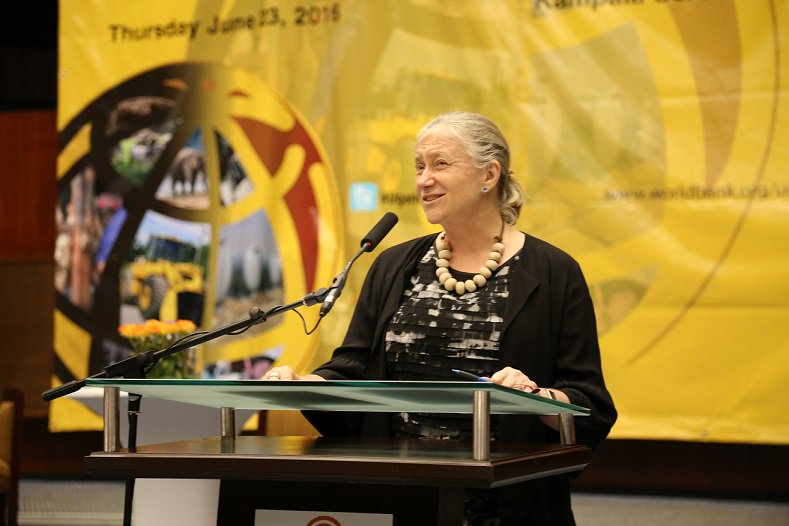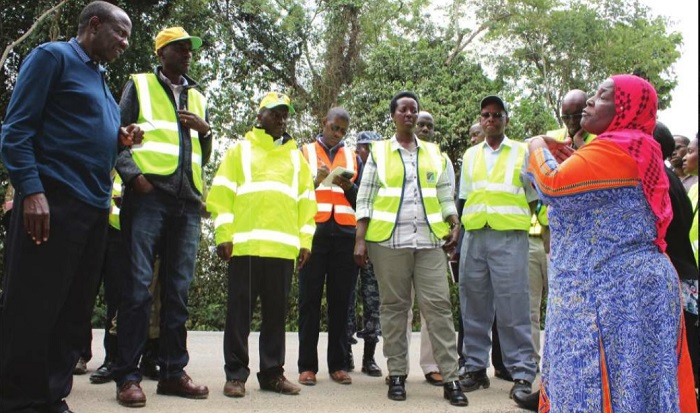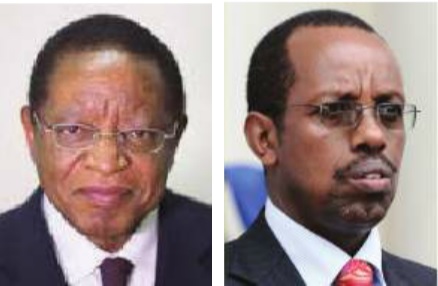
Unlike most past World Bank country managers for Uganda, the current boss, Christina Malmberg Calvo, is relatively media wary. She, instead, prefers to work quietly behind the scenes to execute her two key result areas; leading discussions between the Bank and the Uganda government, and overseeing projects involving the World Bank Group. It is here that her full force has been felt since she arrived in the county in May 2015 writes Flavia Nassaka & Ian Katusiime.
On Sept. 13 she issued a terse statement titled ` World Bank Statement on Withholding New Lending to Uganda’ which has had tongues wagging relentlessly in the country.
The World Bank has been funding various projects in different key sectors including health, education, agriculture, and transport with a commitment of $2.1 billion. As of April 2016, the Bank’s Uganda portfolio included 17 national active operations. According to the Bank’s two paragraph statement, this portfolio is now under review.
The statement said the World Bank Group had taken a decision to “withhold new lending to Uganda effective August 22, 2016”.
It did not directly state the reasons for the tough action, but obliquely said: “We continue to actively work with the Ugandan authorities to address the outstanding performance issues in the portfolio, including delays in project effectiveness, weaknesses in safeguards monitoring and enforcement, and low disbursement”.
Although the statements hints at corruption and incompetence in government departments, the main talking points for pundits regarding the withholding of lending has been the failure of the government use the borrowed money.
Cissy Kagaba, the Executive Director Anti-Corruption Coalition Uganda (ACCU) told The Independent that there needs to be appraisal and investigation of project implementation units for each of the portfolios and that the World Bank should also do a self-check “as the conditionalities and the entire thread of approvals required even for single procurement could be slowing technocrats down”.
Attempts to get a fuller explanation from Calvo proved, as expected, futile.
“We have no further comments beyond the statement we issued,” was the terse reply from the Bank’s Communications Department.
The World Bank is globally renowned for its opaque aloofness but many observers expected Calvo to be more forthcoming with explanations to many questions arising from her statement.
Among the questions was why Uganda is being singled out by the Bank when it is not the only country facing difficulty to absorb Bank credit? Why is the Bank suspending lending at a time when the Ministry of Finance has taken unprecedented initiatives to improve performance and curtail corruption? To what extent have the Bank’s conditionalities contributed to the failure of the government to use borrowed money? Is the punitive action purely financial prudence or is it laced with geopolitics?
After all, almost a month before the Bank publicly announced that it was withholding new lending to Uganda, the finance sector grapevine had been buzzing with the news.

At the time, speculation was rife that the money was being withheld because the Bank did not want to give the government money to use to bail out distressed businesses owned by cronies of President Yoweri Museveni. Many felt the Bank needed to explain its decision.
So when on Sept. 17, the Uganda National Roads Authority (UNRA) invited journalists to travel to Kamwenge in western Uganda for an on-the-spot inspection of the Kamwenge-Fort Portal road, one of the previously Bank funded projects, many hoped the top Bank officials would be on hand to finally give answers. The World Bank cancelled funding for this 66.2km road over alleged sexual misconduct by the contractors; a Chinese firm, China Railway Seventh Group.
On Sunday Sept.18 and at 7am, journalists excitedly hit the road for the 300km journey fromKampala to Kamwenge. But they were in for more disappointment. Together with the Minister of Finance, Matia Kasaija, of Gender, Janat Mukwaya, and of Works, Monica NtegeAzuba, the journalist waited at the Kamwenge District Headquarters for the Bank team. When it finally arrived, Calvo was not on the team. Instead, it appears Negede Lewi; a highway engineer attached to the Bank office in Kampala was leading the team.
Lewi is a highly experienced engineer who oversees the WBG road infrastructure activities in Tanzania, where he is based, and Uganda. He has worked in Ethiopia and South Sudan. However, although the journalists were invited for a press briefing, Lewi and the Bank team refused to speak or answer any questions.
They were backed in their silence by the government team, which claimed it would give all the answers. The Bank’s refusal to explain its actions has led to speculation and most of the speculation is apprehensive.
Trouble for economy

Some experts are warning that the World Bank decision could kill off the already ailing economy.
Ezra Suruma, a former Finance Minister told The Independent that since the World Bank and IMF are world leaders in policy, when they suspend lending to a country, it sends a bad signal to investors and donors. He said, however, he has not yet done an analysis about what effect this will create on the specific sectors that the bank has been funding. “Suspending new debt to the country puts it at risk of reduced foreign exchange inflows; a thing that will eventually hurt the economy,” said another expert, Ezra Munyambonera, a Researcher at the Economic Policy Research Center (EPRC).
Munyambonera told The Independent in an interview that the failure of government departments to use up borrowed money could be partly blamed on the World Bank itself. He said the Bank often delays to commit money for projects and when it finally commits, it loads the projects with so many conditions that complicate implementation. He cited the need for counterpart funding from the government, insistence on specific human rights, environmental concerns, and procurement and financial policies and procedures that are not easy to apply in the Ugandan situation.
 The Independent Uganda: You get the Truth we Pay the Price
The Independent Uganda: You get the Truth we Pay the Price



